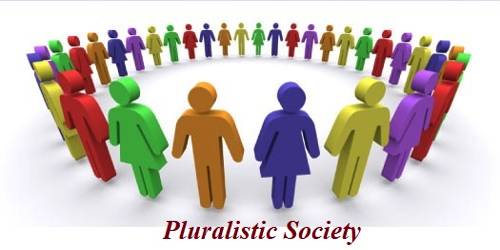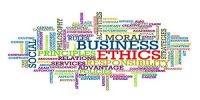A pluralistic society is any society in which citizens can legally and publicly hold multiple competing ethical views and are allowed to choose for themselves what ethical beliefs if any they wish to hold. So, this society is a diverse one, where the people in it believe all kinds of different things and tolerate each other’s beliefs even when they don’t match their own.
Ways of groups interacting with business:
Various groups interact with business for their own interest. The way in which the groups interact with business today are stated below-
- Owners
Business investors in modem society are changing from individuals to institutions. Individuals place their money in mutual funds, insurance plans, pension plans, trust funds, and other institutions, which then invest the funds as representatives of small investors. These institutions have billions of dollars invested in corporate stocks, and each year they increase their investments. Indeed, changes in the ownership role have been significant.
- Management
The relationship of ownership to management has also changed. Today, management is more a differentiated role, semiprofessional in nature, with accession but competence rather than ownership. Management has become a distinct type of work with its own educational programs, literature, and criteria for achievement.
- Labor
In early times employees acted primarily as individuals in their relationship with owners-managers. But now, however, employment became governed by group contracts negotiated by labor unions. Employees today find their employment conduct bound by management’s rules, management-union contracts, and union rules, all of which are surrounded by a firm canopy of government intervention.
- Scientists and Professionals
Historically, the labor union has represented mostly manual skills; and as civilization became more advanced the burgeoning scientific-professional-intellectual groups tended to develop separate institutional interests. Manual workers and intellectual workers are developing separate institutional claims on business. The growth of professional groups has been one of the most striking business developments in recent years.
- Business Associations
Employees have joined together for their own interests and businesses have formed a multitude of business associations to serve the interests which they have.
- Customers
The role of customers is also changing. They are more sophisticated and they have more choice, but at the same time, they need more protection because technological complexity reduces their power to judge product quality at the time of purchase.
- Vendors
Increasing scientific complexity requires business buyers to work closely with their vendors to develop better schedules, methods, and product reliability. Vendors frequently have service representatives in buyers plant and buyers have their technical representatives in vendors’ plants.
- Government and the Community
The role of government in modern business has been increased. The community is definitely one of the growth areas in business’s relationship with its environment.
- The Public Interest
The “public interest” is an abstract, general term used to describe the greatest good for the greatest number. The public interest is actually an idealized norm which all people used to judge the acts of others. Most institutions claim to represents the public interest most of the time.















